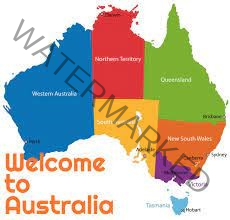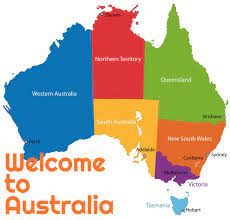Are you moving to Australia? Moving to a new country can be an exciting yet overwhelming experience. To ensure a smooth transition and a successful relocation, it’s crucial to plan and organize your move effectively. This blog post will guide you through the essential steps you need to take before and after your move to Australia. Follow these guidelines to make your journey to your new adventure much smoother.
Things to Consider Before Moving to Australia:
Choosing the Right City to Live in Australia When Moving to Australia
Moving from Canada to Australia is an exciting prospect, but it’s important to consider several factors before making this big move. Australia boasts six states and two territories, each with its unique attractions and lifestyle. Here are some tips to help you choose the right city to live in:
Sydney – A Finance Hub and Cultural Center
Sydney, located in New South Wales, is a prominent job market and accounts for one-third of Australia’s employment in the finance industry. The city offers a vibrant cultural scene and stunning attractions such as the Sydney Opera House and Bondi Beach. However, it is also known for its high cost of living.
Melbourne – A Livable City with Cultural Diversity
Melbourne ranked as the second most livable city in the world, is known for its exceptional cultural diversity. It offers a thriving arts and music scene, beautiful parks, and a rich café culture. Melbourne provides ample job opportunities across various industries.
Canberra – Australia’s Capital with Natural Beauty
As the capital city of Australia, Canberra has its charm with hot air balloon rides and exceptional wineries. It offers a laid-back lifestyle, surrounded by beautiful natural landscapes and a strong focus on education and research. The city provides job opportunities in the government and administration sectors.
Perth – Ideal for Outdoor Enthusiasts
Perth, located in Western Australia, is known for its active outdoor lifestyle, making it a great fit for Canadians who enjoy outdoor activities like hiking, surfing, and cycling. The city has a thriving job market in industries such as mining, engineering, and healthcare.
Brisbane – The Sunshine State
Brisbane, the capital of Queensland, boasts warm weather and beautiful beaches. It offers a relaxed lifestyle and a growing job market, particularly in industries like tourism, education, and technology. Brisbane is a great choice for those seeking a laid-back coastal lifestyle.
Adelaide – Festivals and Cultural Delights
Adelaide, in South Australia, is a festival center with vibrant food and bar culture. The city hosts numerous events throughout the year, including the renowned Adelaide Fringe Festival. Adelaide offers a balance of job opportunities and a lower cost of living compared to Sydney and Melbourne.
Consider your preferences, job opportunities, cost of living, and climate when choosing the right city to live in Australia. Each city has its unique charm and attractions, so it’s important to find the one that aligns with your lifestyle and career goals.
Considering Australian Visa Options When Moving to Australia
Moving to Australia necessitates a thorough awareness of the different immigration alternatives. Visa applications are processed by the Australian Government’s Department of Home Affairs. Consider the following visa options:
Employer Nomination Scheme Visa:
This visa permits skilled workers nominated by their Australian employer to live and work in Australia permanently. Check that your occupation is on the list of qualifying skilled occupations and that you fulfill the health and character standards.
Skilled Independent Visa:
If you have extraordinary abilities required in Australia and are under 45 years old, you can apply for this visa to live and work in Australia permanently. Employer sponsorship is not required.
Visas for Partners and Families
Partner Visa: This visa permits Australian residents’ de facto partners or spouses to live in Australia. It provides both temporary and permanent residence opportunities.
Dependent Child Visa: This visa allows children of visa-holder parents to live in Australia. The dependent kid must be sponsored by the nominator or sponsor of their parent.
Parent Visa: This permanent visa is available to parents of Australian citizens or permanent residents who wish to accompany their children to Australia.
Holiday and Work Visas
- First Work and Holiday Visa: If you’re between 18 and 30 years old (or 35 for some countries like Canada), this visa allows you to stay in Australia for up to 12 months and work during your extended holiday.
These are only a handful of the visa choices available. It is critical to consult the Australian Government’s Department of Home Affairs and thoroughly investigate all visa requirements and possibilities depending on your individual circumstances.
Seeking Employment Possibilities When Moving to Australia
Finding work in Australia becomes a priority once you have got your visa. In your job hunt, your experience and qualifications will be crucial. It is critical to concentrate your efforts on industries where your abilities are in great demand. If your area of expertise is not in great demand, consider acquiring experience in another sector while actively looking for possibilities in your preferred profession. There are several job portals and recruiting experts that may help you find work in Australia.
Understanding Superannuation and Tax
It is critical to understand the tax system and superannuation obligations when working in Australia. Foreign residents working in Australia must get a Tax File Number (TFN) and pay income taxes. Tax rates differ between Australian residents and non-residents. Employers contribute to a fund that employees can access once they retire, which is known as superannuation. Superannuation contributions are allowed for both residents and non-residents, with a minimum of 9.5% of pre-tax earnings remitted to the fund.

Healthcare and Living Expenses
Australia has a reputable healthcare system, which includes government-funded Medicare and the Pharmaceutical Benefits Scheme (PBS). Medicare covers free hospitalization, doctor visits, and necessary drug subsidies. It is important to remember, however, that medical charges may still apply, particularly for non-residents. In general, the cost of living in Australia is greater than in many other nations. Living in Australia may be more inexpensive for Canadians, with the cost of living (without rent) 10.44% lower than in Canada.
Education and Transferring Belongings
Australia has a respected education system, with a diverse selection of state-funded elementary and secondary institutions. levies for public schools are inexpensive for residents, however, recently arriving migrant children may be subject to state government levies. Private schools are an additional alternative. Moving from Canada to Australia might be difficult owing to the distance involved. To guarantee a seamless transfer, it is important to conduct research and evaluate shipping choices. Furthermore, if you intend to bring pets, be aware of quarantine rules and the hefty insurance expenses connected with transferring animals to Australia.
Other Things to Think About When Moving to Australia
Every year, Australia has a substantial number of bushfires, which are exacerbated by dry vegetation and high temperatures. It is critical to anticipate the possibilities of search results.
FAQs On Moving to Australia
- Q: Can I work in Australia while on a student visa?
- A: Yes, as an international student, you are generally allowed to work part-time in Australia. However, there are certain limitations and conditions. It’s essential to check the specific work conditions outlined by your visa.
- Q: Is it necessary to hire a migration agent when applying for an Australian visa?
- A: Hiring a migration agent is not mandatory, but it can be helpful, especially if you have complex circumstances or limited knowledge of the immigration process. A migration agent can provide guidance, advice, and assistance throughout the application process.
- Q: How long does it take to process an Australian visa application?
- A: The processing time for an Australian visa application varies depending on the type of visa and individual circumstances. It can range from a few days to several months. It’s recommended to check the current processing times on the official website of the Department of Home Affairs.
- Q: Can I bring my pets with me when moving to Australia?
- A: Yes, it is possible to bring your pets to Australia, but there are specific requirements and procedures to follow. Australia has strict biosecurity regulations to prevent the introduction of diseases. Make sure to thoroughly research the necessary steps and consult with the Department of Agriculture, Water, and the Environment for up-to-date information.
- Q: What are the costs of living in Australia?
- A: The cost of living in Australia varies depending on the city or region. Major cities like Sydney and Melbourne tend to have higher living expenses compared to regional areas. Rent, groceries, transportation, and healthcare are among the significant expenses. It’s advisable to research the cost of living in your desired location to plan your budget effectively.
Conclusion
To achieve a successful transition, moving to Australia necessitates meticulous planning and preparation. Following this detailed strategy will allow you to tackle important responsibilities step by step, from visa application to arranging to house and organizing your funds. Remember to start early and to seek expert help if necessary. Your relocation to Australia may be a successful and exciting new chapter in your life if you plan ahead of time.
Take the essential actions immediately to begin your new journey in Australia!
